Many of us aim to look and feel significantly younger than our actual age as we get older, and there’s a good reason for that. Engaging in physical activities, staying mentally active, and adopting the right eating habits are crucial for preserving the lifestyle we cherish as we progress into our 40s, 50s, 60s, and further. When it comes to diet, we had a conversation with Liz Hilliard, a 69-year-old fitness instructor and the mind behind the Hilliard Studio Method. She shared the supplements she relies on to feel significantly younger than her years.
Hilliard confesses, “I wish I could get all the vitamins and minerals I need from my diet, which consists of healthy, whole foods. However, as I’ve gotten older, I find I need a little extra help from these five supplements,” she explains.
If you’re thinking about adding new supplements to your daily routine, continue reading to discover Hilliard’s choices. And after you’re done, don’t miss out on exploring these 12 Key Tips for Getting Back in Shape After a Long Hiatus.
Glutathione
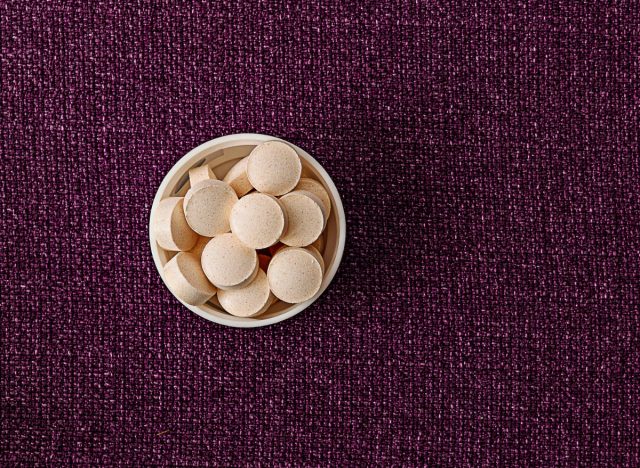

“I start my day every morning with a master antioxidant Glutathione with CoQ10 and PQQ, which are powerful antioxidants that I take in liquid form that can be absorbed more quickly into my body,” Hilliard explains.
Glutathione is a naturally occurring, crucial antioxidant in your body that helps fight against free radicals. Free radicals are molecules that can harm cells in your body, WebMD reports. The amount of glutathione in your body declines as you age, which is why Hilliard takes it in supplement form. “This important antioxidant not only supports energy production in cells but is also important to my cardiovascular health,” Hilliard adds.
Vitamin C
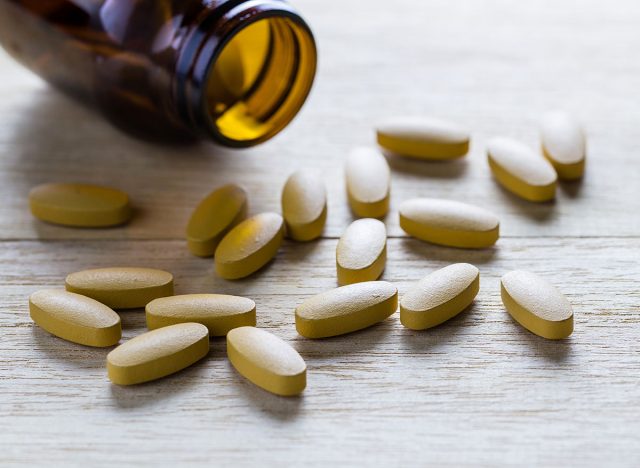

Next up on the supplement front is vitamin C. Hilliard enjoys 1,000 mg of vitamin C with her refreshing, protein-packed HSM smoothie each morning. “Vitamin C is a powerful antioxidant that helps neutralize harmful free radicals in the body while playing an important role in keeping my immune system strong,” she explains.
Magnesium
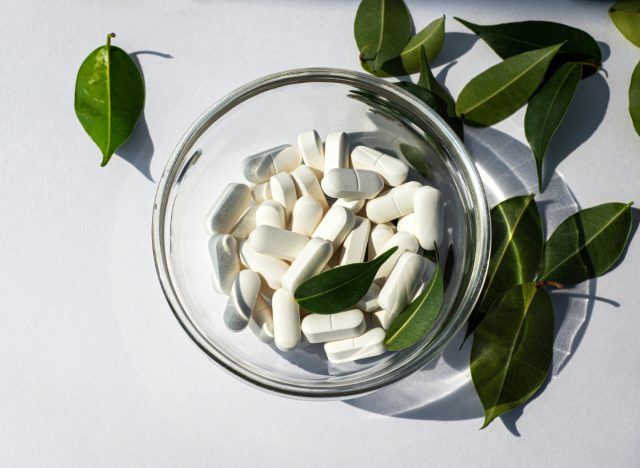

Magnesium is an excellent supplement to take for a multitude of reasons, and Hilliard swears by it. According to research, magnesium supplements can promote relaxation, better sleep, and improved bone health. They can also alleviate feelings of depression.
“I take magnesium every day which not only helps with muscle function and bone health but has also been studied in relation to brain health and cognitive function,” Hilliard says. “I ask a lot of my body with my strength training workout at Hilliard Studio Method and busy lifestyle. I take magnesium glycinate in the evening which helps me relax and aids in my falling and staying asleep along with other pre-bedtime practices that help calm my brain and body to gear down for sleep.”
Vitamin D
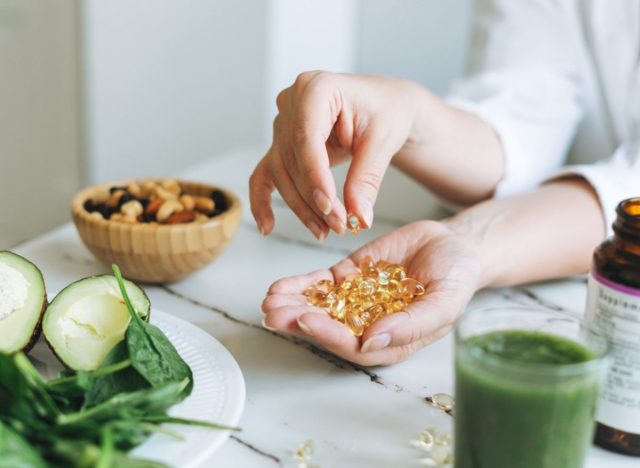

Hilliard says taking a vitamin D supplement daily “is a must,” as it aids in absorbing calcium in her diet to promote good bone health. “It also boosts my immune system to help fight off common colds and sickness,” Hilliard explains. “It’s thought that Vitamin D might have an impact on our mood and mental health as well, and that’s enough reason for me!”
Probiotics
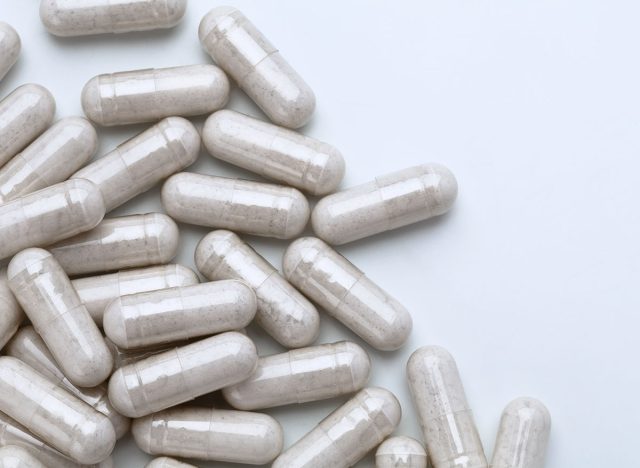

Last but not least, Hilliard takes a probiotic before heading to sleep at night. “As I have aged my digestion has naturally slowed down, but with a healthy, whole-food diet rich in fiber coupled with a probiotic, my body has continued to function on all cylinders by keeping my gut healthy and happy.”
Frequently Asked Questions
What supplements are mentioned in the blog post?
The blog post highlights the following supplements:
- Vitamin D
- Omega-3 Fatty Acids
- Protein Supplements
- Magnesium
- Collagen
Why does the 69-year-old trainer take Vitamin D?
Vitamin D is taken to maintain bone health, support immune function, and improve muscle function. The trainer emphasizes its importance, especially due to reduced sun exposure with aging, which can lead to Vitamin D deficiency.
How does Omega-3 Fatty Acids benefit a senior’s health?
Omega-3 Fatty Acids are crucial for maintaining heart health and reducing inflammation. For seniors, they can significantly contribute to cognitive health preservation and joint health, minimizing the risk of arthritis and other age-related conditions.
What role does protein play in an aging individual’s diet?
Benefits of Protein Supplements:
- Maintenance of muscle mass
- Supports recovery from illness or surgery
- Helps in weight management
As aging individuals may experience a natural decline in muscle mass, introducing protein supplements can help counteract this effect and maintain a healthy, active lifestyle.
Why is Magnesium important for older adults?
Magnesium plays a vital role in over 300 enzymatic reactions in the body, including energy production, muscle and nerve function, and blood pressure regulation. It is especially important for seniors due to its potential to help with sleep quality and overall bone health.
Can Collagen supplements really help you feel younger?
Yes, collagen supplements can contribute to a feeling of youthfulness by promoting skin elasticity, joint health, and potentially strengthening hair and nails. The 69-year-old trainer reports experiencing visible improvements in skin texture and joint mobility since incorporating collagen into her regimen.
Are there any specific brands or types of these supplements recommended?
The blog post does not endorse specific brands but suggests looking for reputable suppliers who provide third-party testing on their products for safety and efficacy. It also recommends consulting with a healthcare provider to determine the best type and dosage of any supplement, tailored to an individual’s health needs and conditions.
Is it safe for seniors to start a new supplement regimen without consulting a doctor?
No, it is highly advisable for anyone, especially seniors, to consult a healthcare provider before starting any new supplement regimen. This ensures the supplements will not interact negatively with any medications they may be taking and are suitable for their specific health needs.






